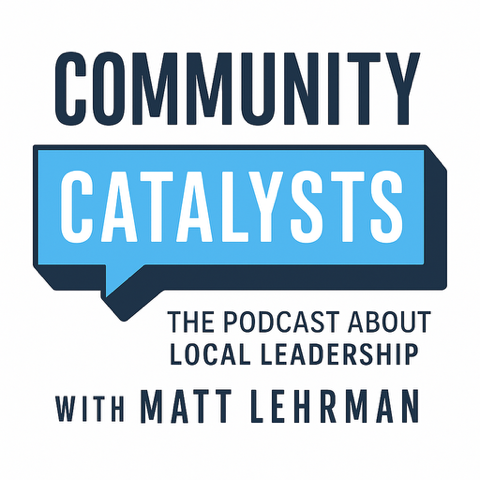Leading Through Unreason
Strategies for Navigating Local Governance
Public leaders—whether elected, appointed, or serving as staff—frequently face the daunting task of managing unreasonable behavior. From disruptive citizens and antagonistic colleagues to the relentless vitriol of social media, these encounters can test the endurance and composure of even the most steadfast leaders.
Just 10 days ago, at the January 2025 Local Leadership Chat, civic leaders from across the country—representing a wide range of roles and perspectives within local government—came together to share their experiences and strategies for tackling these challenges with resilience and grace. While no single approach guarantees success, their hard-earned insights offer a wealth of practical wisdom.
The following “baker’s dozen of suggestions” reflects the breadth of their advice, offering a guide to inspire and empower everyone grappling with the seemingly unwinnable challenge of dealing with unreasonable people.
1. "Bless Your Heart": Reframing Unreasonableness
The Southern phrase "bless your heart" isn’t just a saying—it’s a mindset. Leaders can adopt a similar graceful approach to reframing encounters with difficult individuals. Instead of taking behavior personally, remind yourself that their frustration often reflects deeper fears or unmet needs. One participant noted, “Access love. Think about someone you care about deeply and channel that grace into responding to unreasonable behavior.”
(And yes, we recognize that "bless your heart" is sometimes used with less-than-graceful intent—but we challenged our conversation to rise above cynicism and sarcasm.)
Action: Approach confrontations with empathy and curiosity. This can help de-escalate situations and create opportunities for understanding.
2. "Ignore It" When Appropriate
Sometimes, the best response is no response. “Let it burn itself out,” suggested one participant, emphasizing that not all behavior warrants engagement. Ignoring unreasonable behavior doesn’t mean ignoring the person entirely. It’s about choosing your battles and refusing to be baited into counterproductive arguments.
Action: Assess whether engaging will lead to meaningful progress. If not, consider stepping back to maintain focus on your priorities.
3. "Take a Time Out"
Leaders stressed the value of pausing when tensions rise. Whether it’s a short break during a heated meeting or a moment to collect your thoughts before responding, “time outs” can prevent escalation. “If someone gets out of control,” one participant shared, “gavel the meeting to adjournment for a five-minute break to regain focus and composure.”
Action: Use intentional pauses to reset the tone of a meeting or interaction, signaling that decorum must be maintained.
4. An Invitation to Coffee
Extending an olive branch can shift the dynamic of a contentious relationship. Inviting detractors for coffee or a one-on-one conversation demonstrates your willingness to engage in good faith. As one participant observed, “It challenges them to articulate their concerns outside of the group setting. Often, they’re not prepared to have that conversation.”
Action: Use private meetings to build relationships, clarify misunderstandings, and encourage constructive dialogue—it’s far more productive to address individuals directly than to engage with a group dynamic that may fuel mob behavior.
5. Don’t Take It Personally
Unreasonable behavior may reflect external frustrations rather than a personal vendetta. Leaders emphasized the importance of “having a thick skin” and cultivating “self-confidence” to endure personal attacks.
Action: Remind yourself that criticism is part of leadership. Focus on your purpose rather than the negativity.
6. Ask Questions on Behalf of the Disgruntled
When faced with angry or discontented individuals, one participant suggested asking questions that reflect their concerns. “This lets them know their issues are being acknowledged,” they said, “even if I don’t agree with their position.” This approach reinforces the idea that the responsibility of representation extends beyond serving only those who share your views—it’s every elected official’s duty to ensure all voices are heard.
Action: Formulate questions that address gaps in understanding, helping to build bridges, reduce tension, and demonstrate a commitment to inclusive representation.
7. Don’t Go Low
Responding to incivility with incivility often backfires. “Fighting fire with fire only escalates conflict,” warned one participant. As a line from Fiddler on the Roof wisely notes, “An eye for an eye, a tooth for a tooth, and the whole world will be blind and toothless.” Instead, maintain professionalism and composure, setting an example for others.
Action: Resist the temptation to retaliate. Uphold the standards of respectful dialogue, even when others do not, fostering an environment where conflict can be addressed constructively.
8. Group Accountabity in the Moment
Leaders highlighted the critical need for governing boards and councils to hold themselves accountable as a group, particularly in the face of dysfunction. Addressing issues immediately prevents them from festering and undermining the group’s ability to work collaboratively. Participants agreed that this responsibility is most effectively carried out by the meeting chair or, in some cases, an external facilitator.
“If someone’s behavior is out of line, it’s important to call it out respectfully but firmly,” one participant noted. This approach ensures that the group maintains its focus and upholds a standard of civility.
Action: Foster a culture of collective accountability by equipping meeting chairs or facilitators with the authority to address issues in real time, ensuring the group remains productive and respectful.
9. Manage Your Own Psychology
Handling unreasonable people isn’t just about external strategies—it’s also an internal process. One participant highlighted the importance of grounding yourself, saying, “Don’t let them pull you out of your character.”
Action: Learn and practice stress management skills such as mindfulness, deep breathing, or other relaxation techniques to help maintain composure and clarity during challenging interactions. Building these habits can empower you to respond thoughtfully rather than react impulsively under pressure.
10. Create New Forums for Community Dialogue
Current processes too often bestow disproportionate influence on the loudest voices. Leaders proposed establishing alternative spaces for constructive dialogue. “Create forums where more people feel heard and respected,” one participant suggested. This includes community collaboration committees, participatory budgeting initiatives, and special events to engage diverse stakeholders.
Action: Proactively design opportunities for inclusive and respectful community engagement.
11. "Keep Your Enemies Closer"
Building relationships with detractors can lead to surprising insights and soften opposition. A participant cited Abraham Lincoln’s quote: “I don’t like that person very much. I need to get to know them better.”
Action: Seek out opportunities to engage with critics. Understanding their perspectives may open pathways for collaboration.
12. Play the Long Game
Effective leadership requires patience and a focus on building a shared vision for the future. As one leader shared, “Focus on long-term goals rather than being derailed by short-term conflicts.” True progress comes from uniting around goals that serve the public interest, and recognizing that building a better future is a responsibility that unfolds over time.
Action: Engage your community and colleagues in defining what the future should look like in 10 or 20 years. Build consensus around shared priorities and frame decisions as steps toward achieving those goals, emphasizing that serving the public good is a long-term commitment.
13. Give Them Responsibility for a Project
Channeling negativity into productive efforts can transform criticism into collaboration. One participant shared, “We’ve had success with participatory budgeting. It gives people ownership over solutions instead of just criticizing.” By allocating a specific budget for a project and involving community members in deciding how funds are used, leaders can empower residents to become part of the solution.
Projects might include improving parks, funding public art, or addressing local infrastructure needs. When people are engaged in allocating resources, they feel valued and heard, which can reduce tension and promote collaboration.
Action: Dedicate part of your budget to community-driven initiatives. Invite residents to propose ideas, vote on priorities, and see the results of their input. This approach turns criticism into constructive action and strengthens community ties.
Hope and Resilience in Leadership
Navigating unreasonable behavior isn’t easy, but as one participant concluded, “We cannot give up hope. The work of local governance is essential, hard, and ongoing. It cannot be allowed to stall due to an unwillingness to reason together.” By applying these strategies—from reframing negativity to creating new opportunities for dialogue—leaders can rise above challenges and drive meaningful change.
To every civic leader facing these struggles: you are not alone. With resilience and creativity, we can build communities where reason and collaboration prevail, ensuring the public interest is effectively served.




